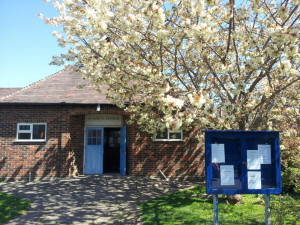A recent and comprehensive study published in The Lancet found that there is an increased risk of breast cancer amongst HRT users. This is not new news as the link has long been known. But it showed the risk to be higher than had previously been stated. And that after stopping the risk persists for longer than had been thought. Effectively it reconfirms our right to regard taking HRT with even more caution.
Information About the Breast Cancer Risk for HRT
Breast Cancer Risk – Key Findings
- The general risk for women (aged 50-69 years) who have not taken HRT is 6.3%.
- In those starting combined HRT (oestrogen and progesterone) when aged 50 for five years it increases to 8.3%. The report states that equates to 1 in 50 users.
- For those taking oestrogen and intermittent progesterone HRT it increases the risk to 7.7%. Which is 1 in 70 users.
- And if taking oestrogen-only HRT that risk is increased to 6.8%. Equating to 1 in 200 users.
- The risk after ten years of taking HRT would be about twice as great.
- The increased risk persisted for more than a decade, increased by the duration of HRT use.
- If taken for less than a year there was not an extra level of risk.
- All forms of HRT carried these risks except topical vaginal oestrogens.
HRT – Risks & Benefits
 I don’t think HRT can ever be considered as a benign medication by virtue of what it is chemically. Sex hormones are steroids. Powerful pharmaceuticals with well-known and well-documented side-effects. It has been known for a long time that HRT can cause cancer in hormone-dependent tissue. The question is the level of that risk.
I don’t think HRT can ever be considered as a benign medication by virtue of what it is chemically. Sex hormones are steroids. Powerful pharmaceuticals with well-known and well-documented side-effects. It has been known for a long time that HRT can cause cancer in hormone-dependent tissue. The question is the level of that risk.
From a total of around 20 million cases of breast cancer in western countries since 1990, this report estimates that HRT use would have accounted for one million cases.
This looks to be a robust, thorough and extensive meta-analysis. You can read the full Lancet study here. There have been other studies that have raised concerns but hopefully this one will help clarify and register the level of risk.
Alongside HRT, there are of course many risk factors for breast cancer, such as alcohol and obesity. These all need to be addressed. But why load the dice by adding in any additional risk factors?
My concern is that historically HRT’s risks have I believe been underestimated and downplayed. And quite possibly some of the benefits overstated. Not only that, few are told at the outset, but many women experience oestrogen withdrawal symptoms (menopause-type symptoms) when they do eventually have to stop.
 HRT is big business and I am sure there will be press statements, interpretations and retaliatory studies that suggest it is all ok. Until there is a new drug to replace it, I do not imagine it will go quietly into the night. But at some point another drug will appear. My guess is that once that next drug is being marketed for menopausal symptoms, the discussion around HRT and these potential risks will be given more attention than has been the case so far. Let’s see.
HRT is big business and I am sure there will be press statements, interpretations and retaliatory studies that suggest it is all ok. Until there is a new drug to replace it, I do not imagine it will go quietly into the night. But at some point another drug will appear. My guess is that once that next drug is being marketed for menopausal symptoms, the discussion around HRT and these potential risks will be given more attention than has been the case so far. Let’s see.
If You Are Taking HRT – What Next?
If you are on HRT it seems there is good cause to review your HRT treatment with your GP. But never just stop any prescribed medication without speaking to your GP or healthcare professional first.
You may be looking at these figures and wondering about oestrogen-only HRT. But that is usually only prescribed for women when they have had their uterus removed. If you still have your uterus there is a risk of endometrial (womb) cancer. Other hormone treatments and preparations may be offered. But all drugs come with risks of side effects.
“Sarah Branch, deputy director of the MHRA’s vigilance and risk management of medicines division, said: No medicine is completely without risk, but it is important for women to be able to make an informed decision about the risks and benefits that are appropriate for them…” (Women on HRT urged to review treatment with their GP following new breast cancer risk evidence, Daily Telegraph 30.8.19)
Bioidentical HRT has increased in popularity for those that can afford it. However, I am not aware of robust long-term studies that demonstrate its safety. And in my experience it also seems to be as difficult to withdraw from as standard HRT.
 So, for me the jury is still very much out for Bioidentical HRT. But I think it has delivered its verdict on standard HRT.
So, for me the jury is still very much out for Bioidentical HRT. But I think it has delivered its verdict on standard HRT.
What Can I Do if Not HRT?
You may be on HRT, deciding to stop or can’t take it because of your medical history. You may have tried it and it did not suit you. Or you may be one of many women who does not like the idea of pharmaceutical hormones. Whatever your situation there is plenty you can do to support yourself at menopause.
I am both surprised and frustrated at how much women are not told about their hormonal functioning and health. When I talk with women in clinic or out and about, they rarely know that they have a back-up form of oestrogen and how their bodies are designed to go through menopause and beyond. Most of the coverage in the media hinges around taking HRT and/or suffering. Which is a limited and disempowering framework.
 Taking a natural health approach to your menopause, either alongside HRT or in place of, aims to support your hormonal balance and your overall long-term health. I have specialised in offering women information and support at menopause for over 17 years. It is a wonderfully complex and interesting area of women’s health. But it is also emotionally and culturally significant as a milestone. There are positives to match the challenges. Do contact me if you would like a free mini appointment in West or East Sussex, or via Skype, to discuss your next step and see if my approach might suit you.
Taking a natural health approach to your menopause, either alongside HRT or in place of, aims to support your hormonal balance and your overall long-term health. I have specialised in offering women information and support at menopause for over 17 years. It is a wonderfully complex and interesting area of women’s health. But it is also emotionally and culturally significant as a milestone. There are positives to match the challenges. Do contact me if you would like a free mini appointment in West or East Sussex, or via Skype, to discuss your next step and see if my approach might suit you.
Information to Support You at Menopause
I write about many aspects of the natural health approach at menopause. Whether or not you take HRT, I offer it to help women at this point in their lives. You can see all the Menopause Blogs on my website, covering a wide range of menopause topics. But here I have selected a few that may be of particular interest:
HRT – The Devil and the Deep Blue Sea
Perimenopause Advice – from a patient in East Sussex
Menopause Doesn’t Need to be a Horror Story
HRT and Osteoporosis: What You Need to Know
Workshops to Support You at Menopause
 I have run menopause workshops for years. Giving useful information to help you navigate this life-stage. Working out a path that is right for you. My next Self-Help Menopause Workshop is running in Lewes, East Sussex. Do contact me for more details if it interests you. Booking is essential.
I have run menopause workshops for years. Giving useful information to help you navigate this life-stage. Working out a path that is right for you. My next Self-Help Menopause Workshop is running in Lewes, East Sussex. Do contact me for more details if it interests you. Booking is essential.
Breast Cancer Risk for HRT – Having a Balanced & Informed Discussion
It seems reasonable to me for women to know that there is a level of risk when taking HRT. And that it increases the longer they take it for. It is hard for women to make an informed choice if the risks are not adequately represented. And any benefits viewed within a framework that all too often offers no alternative.
We need to know that we have a range of options as to how we care for ourselves at menopause. And that for many of us there are options to explore before resorting to HRT and running the gauntlet of its potential side effects.
I hope you have found this blog responding to The Lancet’s recently published study on Breast Cancer Risk for HRT to be of interest. And if you are struggling or wondering what your options are, I offer free mini appointments at both clinics and via Skype. Please do contact me – thank you.

